Part 2: Disseminating through art
Background
In the first part of our blog series we described the research we undertook on working carers and how after successfully applying for funding from a collaborative BEAF and BU pilot project, we were matched with artist Adilson Naueji to communicate findings. We now share some reflections from this collaborative project which happened during the summer of 2025.
About the artist
Adilson’s journey as an emerging artist began during the COVID lockdown as a way to relieve the stress of the situation. Drawing and painting allowed him to create powerful works that connected with his community and tell authentic stories.
His artistic practice focuses on human features, and his realist style enables him to explore the relationship between individuals and their surroundings. Through acrylic and oil paintings, he documents daily urban life and shares real histories.
He was attracted to the carer research work due to personal experience and also because it allowed him to focus on a new work that was not only visually appealing but also socially relevant.
The process
We firstly shared our research findings with Adilson – consisting of our original brief for the BEAF project and a cutdown version of an in-progress research article focusing on quotes from working carers. Helping visualise some of the issues that they experienced and perhaps providing some ideas about how they could be represented in an artwork whilst also providing some background on caring and working carers.
During July 2025 I had a very productive meeting with Adilson at the Lighthouse where he was presenting his first solo exhibition – BH5 Boscombe Beyond Your Eyes. He chatted to me about the exhibition and we also sat down over a coffee to discuss the project brief and how he thought he could visualise his initial ideas and thoughts.
After much searching, Adilson was able to locate a carer living in the region who was no longer working due to her caring responsibilities and the family member that they cared for – her husband, who had chronic fatigue and a range of other long-term health conditions – who both agreed to participate in the project.
In August, I had a follow-up meeting with Adilson where we chatted about progress on the project and was lucky enough (with my wife) to be able to view a work in progress at his studio to get a feel for the work itself, the size of the canvas and to chat about the areas of the painting still to be completed. This was very much appreciated, as showing the partially completed artwork to anyone prior to finalising was something that he wouldn’t normally do.
Connecting with the carer and her family and sharing their challenges was difficult emotionally, but Adilson approached this in a very empathetic way which really comes through powerfully in the final piece he produced.
Increasing empathetic understanding through art
Participants in our study (Pulman and Fenge, 2025) felt that it was difficult for some managers and colleagues to fully appreciate working carer experiences unless they had personal experience of a similar situation. This highlights the need for more training for line managers and the wider workforce about the needs and experiences of working carers to promote supportive working environments.
By disseminating findings through art, we wanted to engage with, and communicate to, employers across the region using a visual approach which would help to open a window on the hidden world of the working carer.
To date, we have been able to display the finished artwork at the NIHR ARC Wessex Annual Event in October with Adilson in attendance to discuss his painting with event attendees.
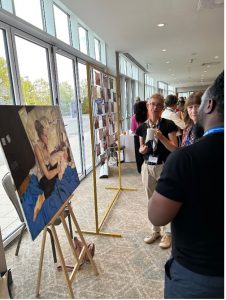
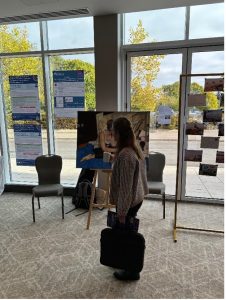
This highlighted how impactful, stimulating and thought provoking art can be as opposed to the usual blend of event posters and PowerPoints we, as researchers, quite often utilise to display academic findings – sometimes stopping people in their tracks as I witnessed on the day.
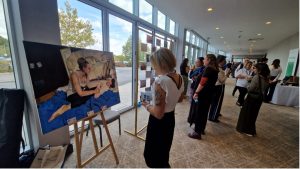
Next Steps
In addition to any forthcoming plans between BU and BEAF to display project outputs, we are also hoping to display the artwork again at an event on Carers Rights Day on 19th November and an exhibition at the Lighthouse in Poole during January 2026.
We are also interested in how we can best help Adilson to move further into the crossover areas of health research and art outputs by looking at potential funding streams (arts council and health funding pathways) which he might be able to access beyond this current project, as this area seems like it has incredible potential in highlighting qualitative data in a visually arresting and reflective way.
Positives of collaborating with local artists
Disseminating research can sometimes be incredibly dry as a subject, where important findings might be hidden digitally behind a journal firewall within reams of text and quotes, or worse, be highlighted in a staid or complex web of slides risking losing key research messages to (sometimes) disinterested attendees.
Art offers a tangible, visually impacting way of connecting an audience to a research message on a deeper level which is likely to stay longer in the memory. Mention of da Vinci’s Mona Lisa or Munch’s The Scream will immediately trigger a direct visual memory in a person in a way that text might not always be able to accomplish.
There might be significant challenges in the process of linking these ideas, but as Adilson notes, these are worth overcoming:
“Dealing with things as the sensitive matters of carers, finding the subject, and short deadlines increases the challenge and probably influenced the final result of the painting. On the other hand, it was the most educational project I ever worked on, and diving into the universe of carers you cannot walk out indifferent. I feel honoured to give face to the research you are doing in this field, and I truly hope the artwork serves the purpose in real life for which it was made; to raise awareness about carers, starting conversations at different levels of our society.”
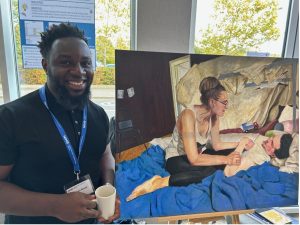
Looking at more innovative ways of cascading research messages via a long-standing medium like art seems like an incredibly simple and powerful step forward in increasing research impacts and prompting a discussion with an audience in retrospect. So if you are a post-doctoral researcher, seeking a new way of disseminating research evidence, what are you waiting for?
With thanks to:
- Artist Adilson Naueji.
- The working carer research project was supported by the NIHR Applied Research Collaboration (ARC) Wessex.
- The artwork created was supported by BEAF Arts Co and Bournemouth University.
More information on our project:
Professor Lee-Ann Fenge – lfenge@bournemouth.ac.uk
Dr Andy Pulman – apulman@bournemouth.ac.uk
https://nccdsw.co.uk/clusters/research/carer-research
https://www.arc-wx.nihr.ac.uk/social-care
Pulman, A. and Fenge, L.-A., 2025. Caring and working: developing insights into the world of the working carer. Health & Social Care in the Community. https://onlinelibrary.wiley.com/doi/10.1155/hsc/5541190
https://www.instagram.com/adilson_naueji/
 Last week we opened the Evidence Synthesis Centre in the School of Medical Sciences at Kathmandu University in Nepal. The centre is part of a wider initiative is funded by The British Academy and supported in the field by Green Tara Nepal. Earlier parts of this initiative included online workshop on systematic reviewing and evidence synthesis as well as face-to-face training in Nepal late last year. The project involved Bournemouth University’s Dr. Pramod Regmi and Prof. Edwin van Teijlingen both in the Faculty of Health, Environment & Medical Sciences.
Last week we opened the Evidence Synthesis Centre in the School of Medical Sciences at Kathmandu University in Nepal. The centre is part of a wider initiative is funded by The British Academy and supported in the field by Green Tara Nepal. Earlier parts of this initiative included online workshop on systematic reviewing and evidence synthesis as well as face-to-face training in Nepal late last year. The project involved Bournemouth University’s Dr. Pramod Regmi and Prof. Edwin van Teijlingen both in the Faculty of Health, Environment & Medical Sciences. 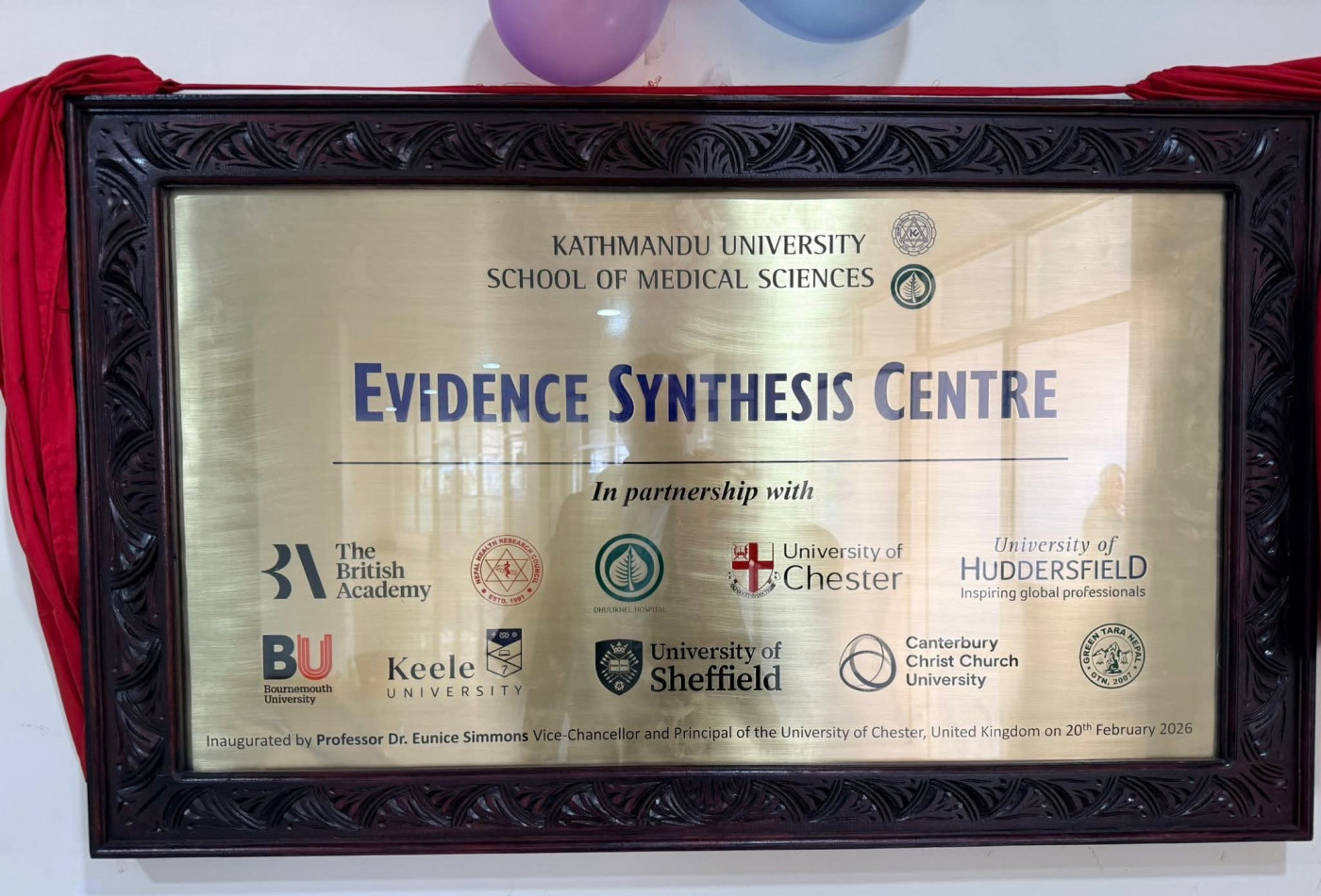
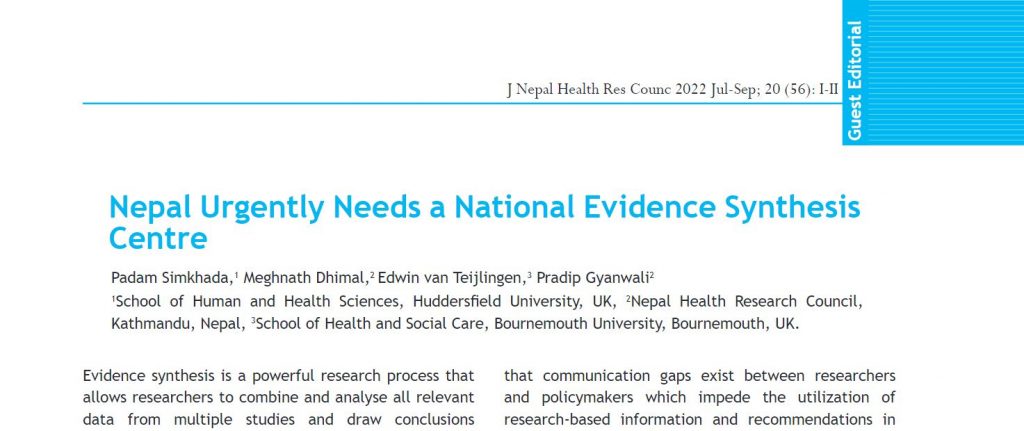
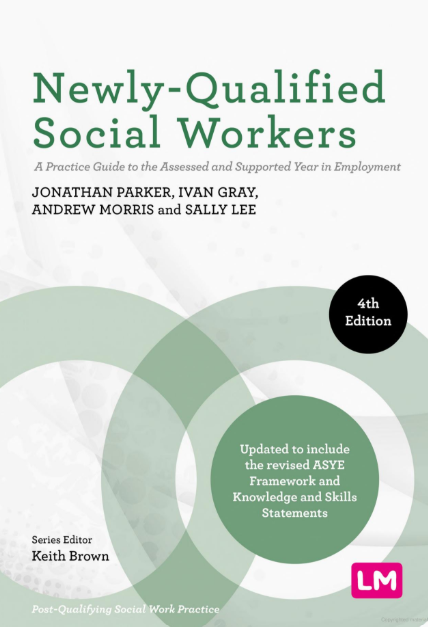
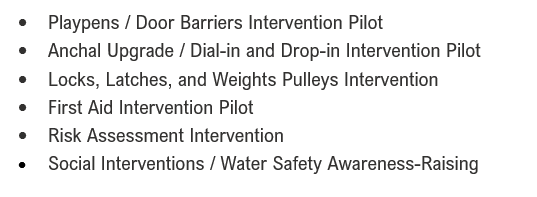
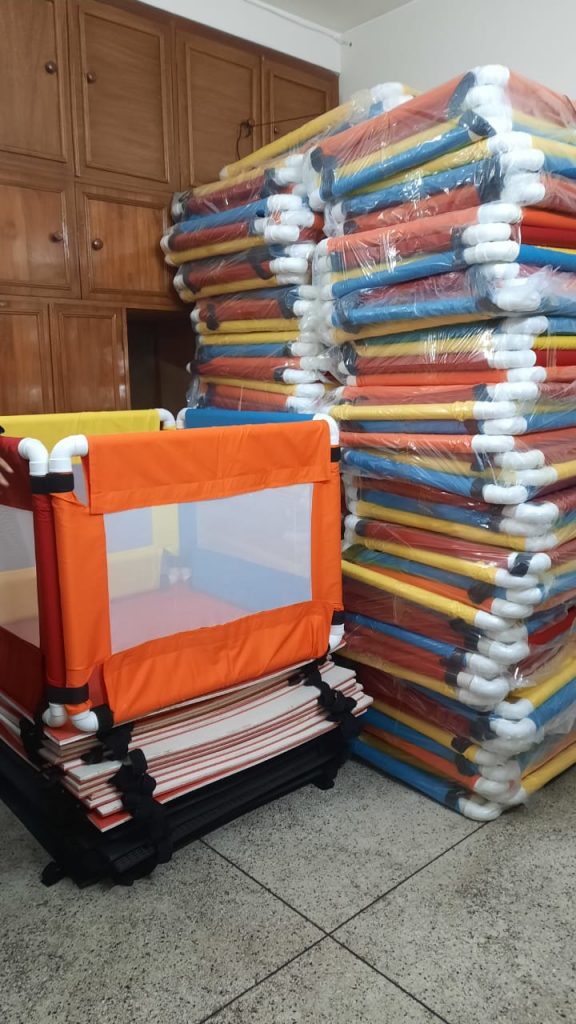
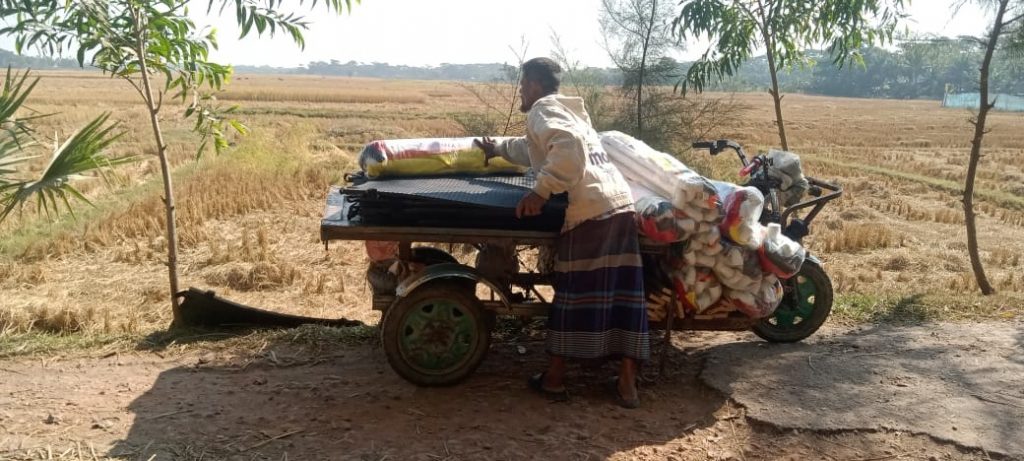

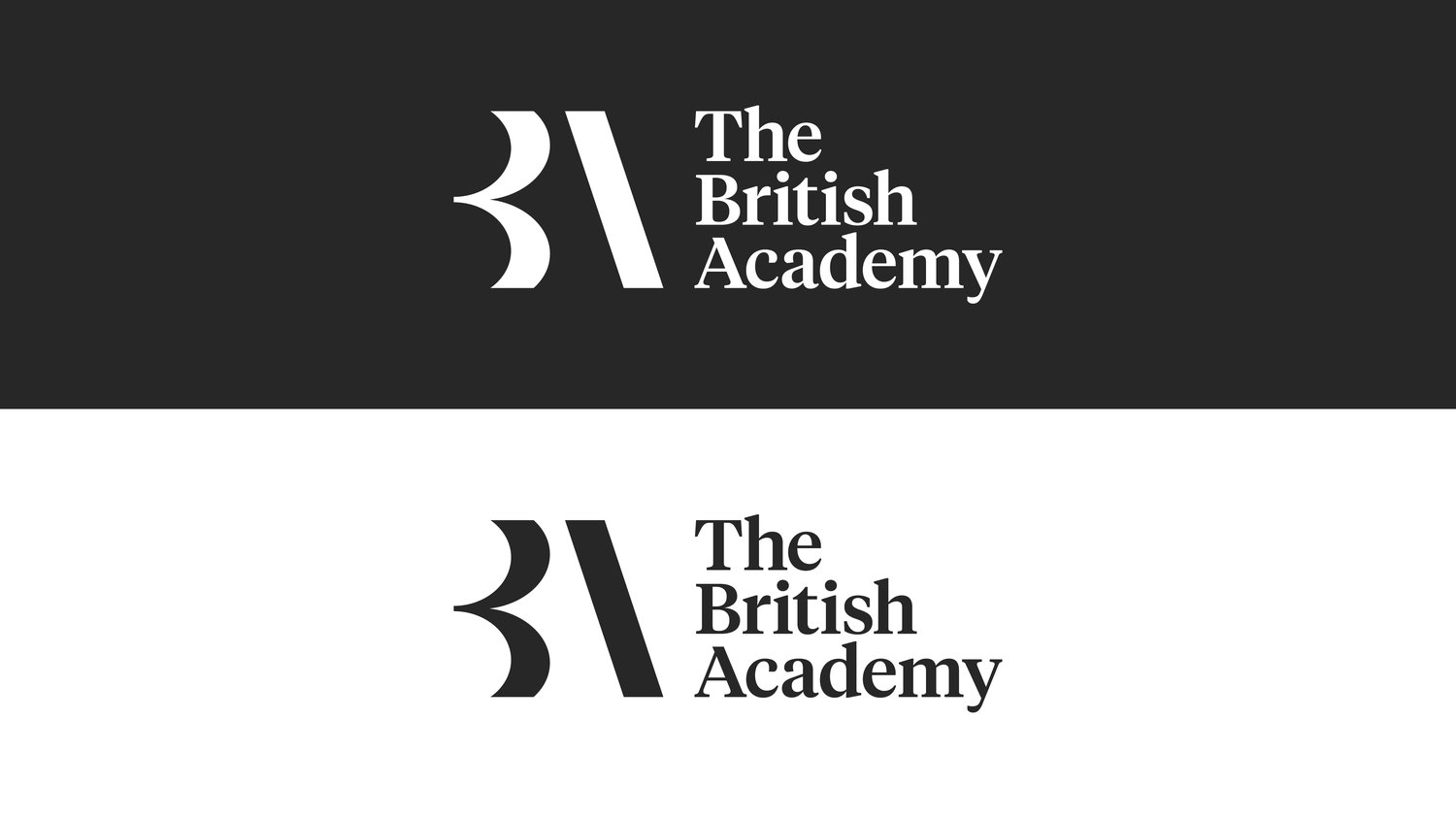
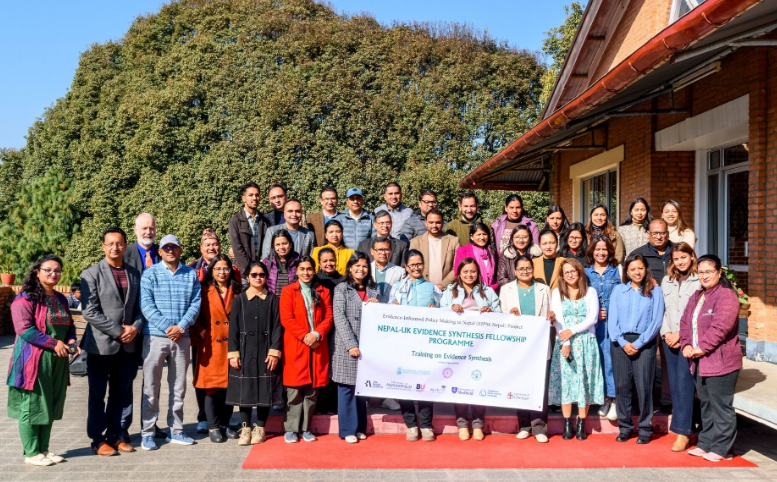

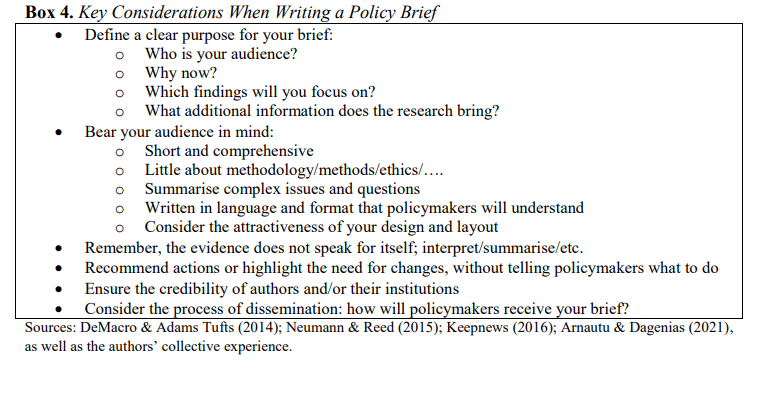

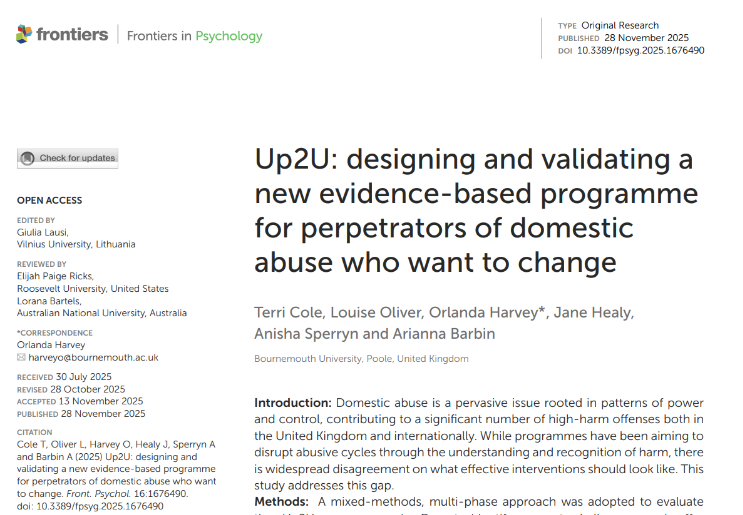

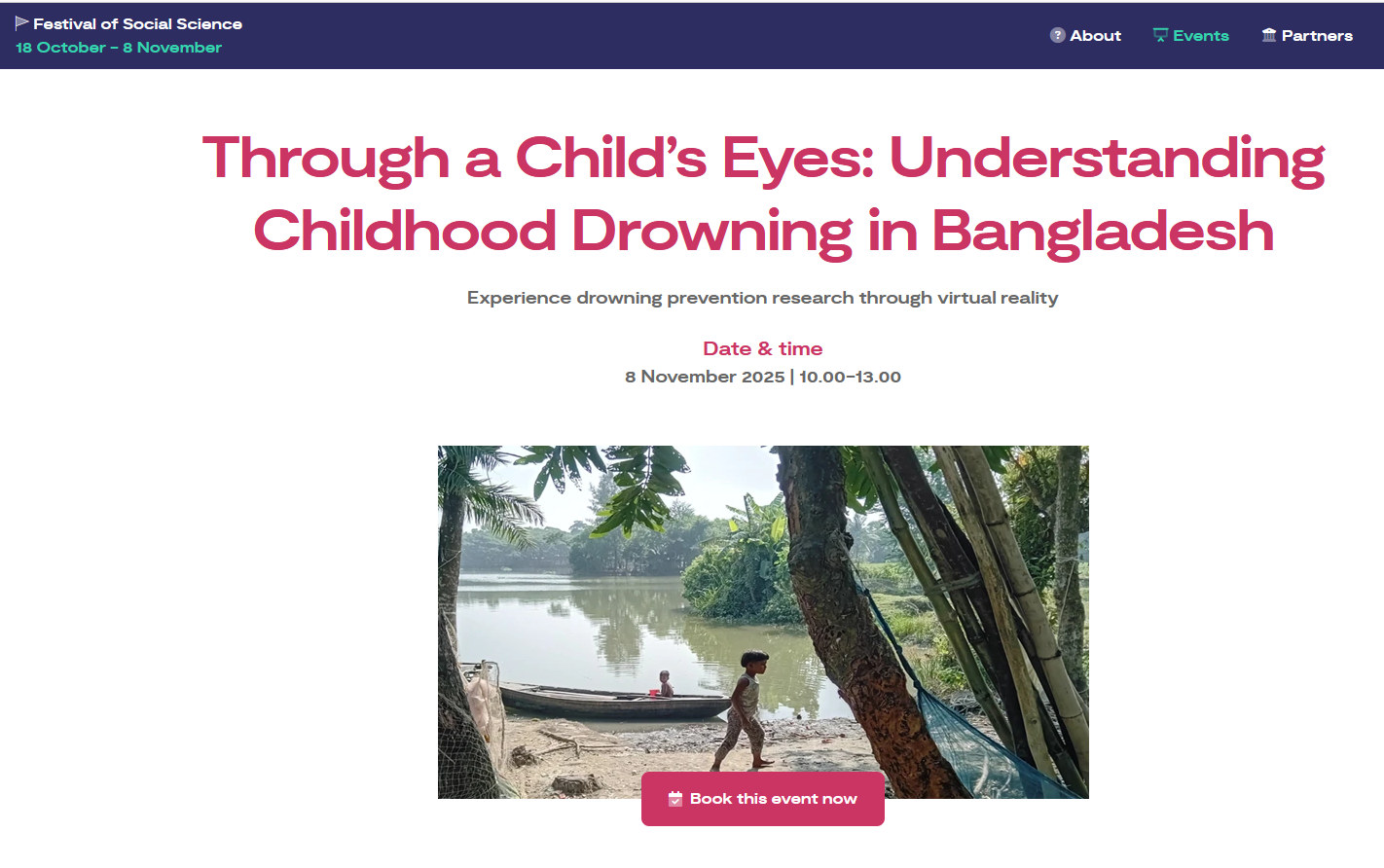









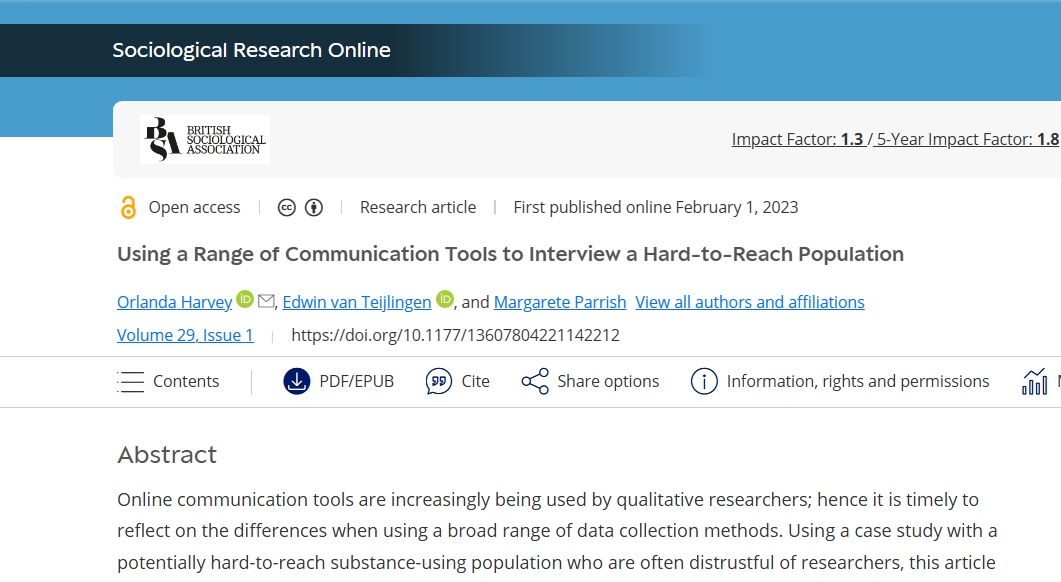
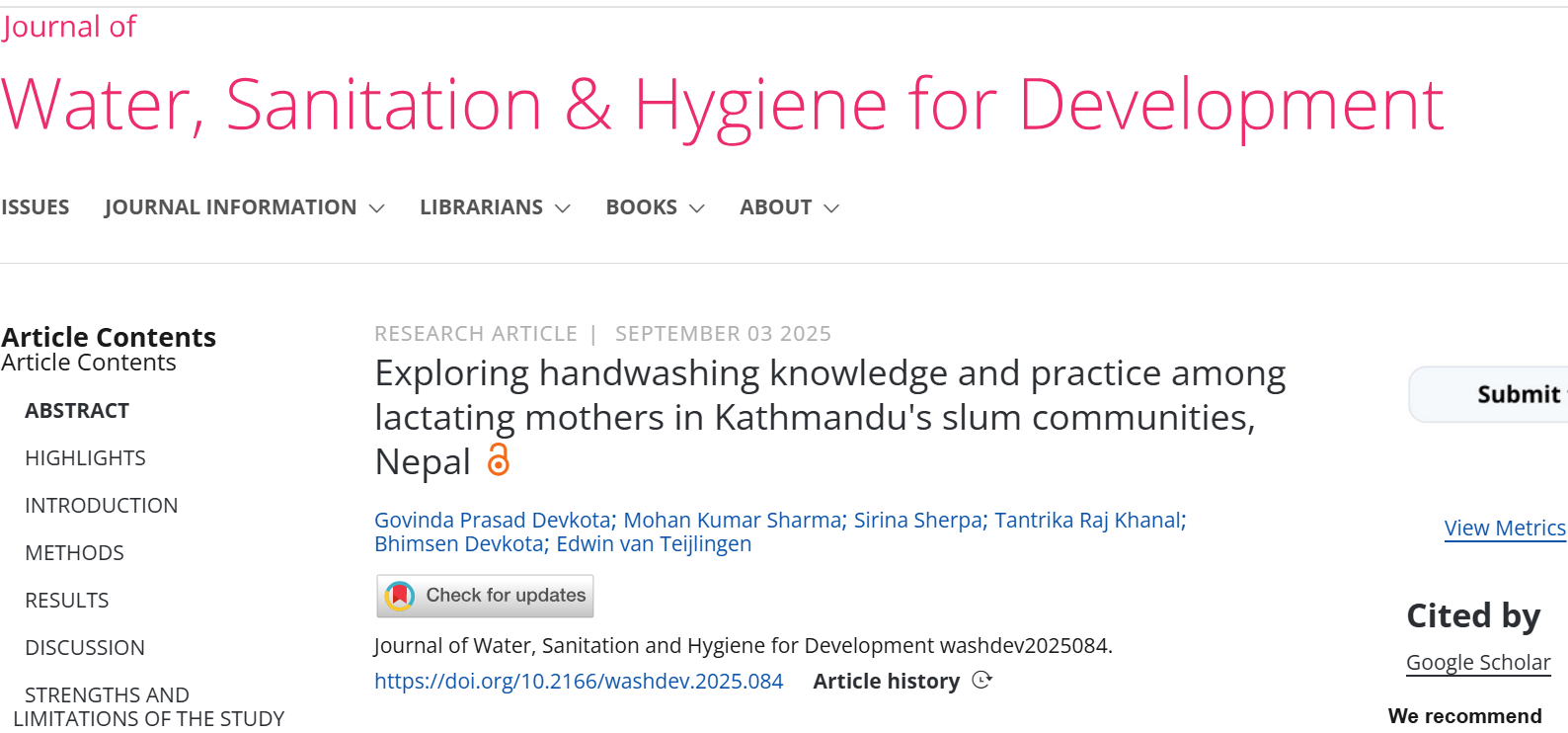

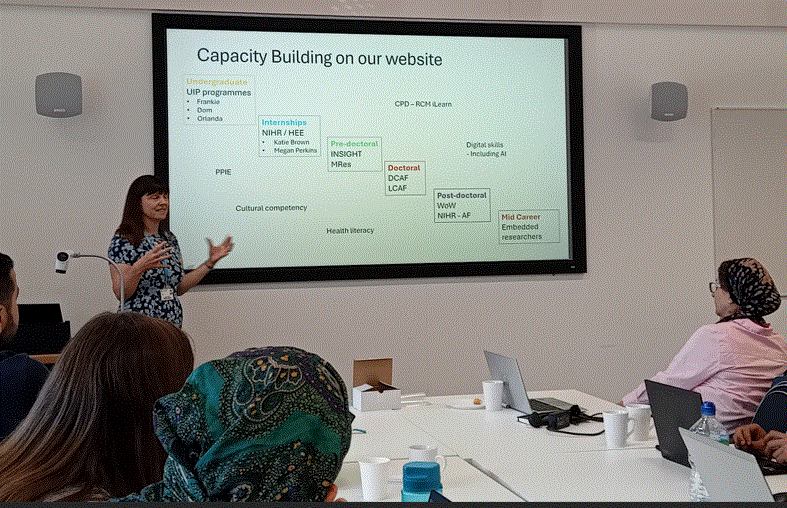


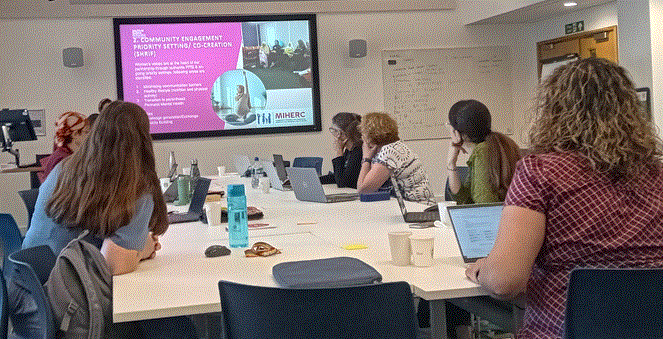
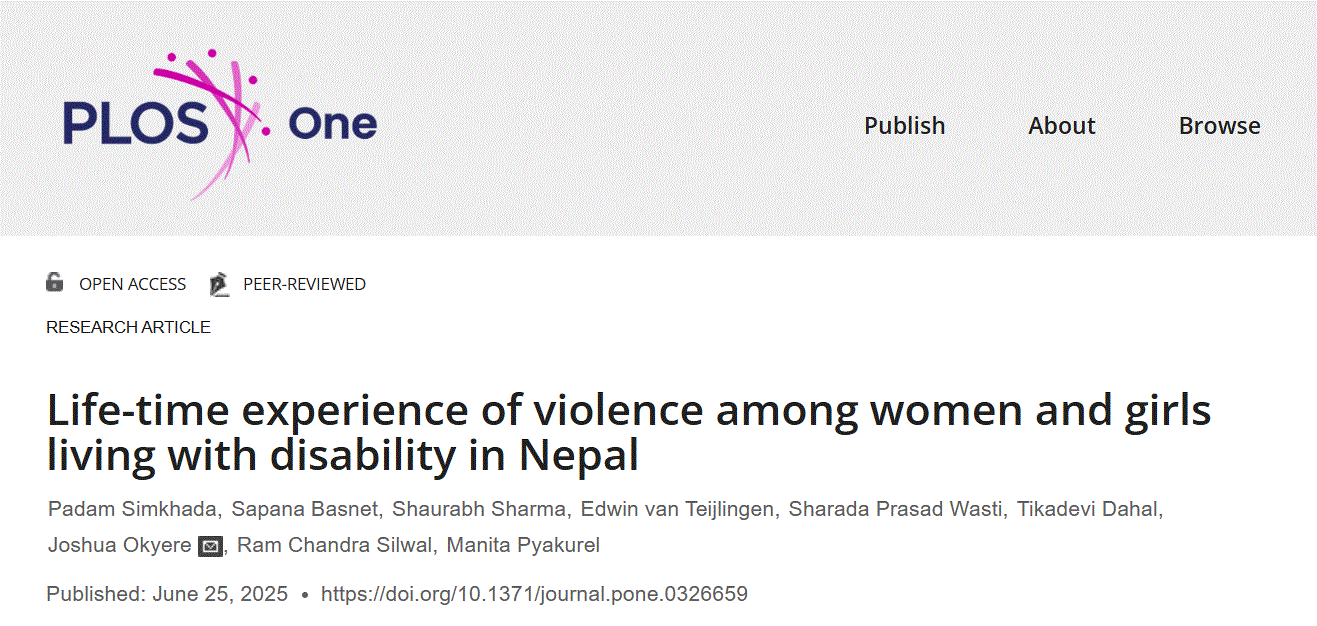
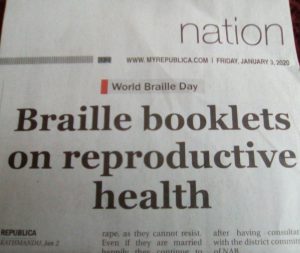














 From Sustainable Research to Sustainable Research Lives: Reflections from the SPROUT Network Event
From Sustainable Research to Sustainable Research Lives: Reflections from the SPROUT Network Event REF Code of Practice consultation is open!
REF Code of Practice consultation is open! BU Leads AI-Driven Work Package in EU Horizon SUSHEAS Project
BU Leads AI-Driven Work Package in EU Horizon SUSHEAS Project ECR Funding Open Call: Research Culture & Community Grant – Apply now
ECR Funding Open Call: Research Culture & Community Grant – Apply now ECR Funding Open Call: Research Culture & Community Grant – Application Deadline Friday 12 December
ECR Funding Open Call: Research Culture & Community Grant – Application Deadline Friday 12 December MSCA Postdoctoral Fellowships 2025 Call
MSCA Postdoctoral Fellowships 2025 Call ERC Advanced Grant 2025 Webinar
ERC Advanced Grant 2025 Webinar Update on UKRO services
Update on UKRO services European research project exploring use of ‘virtual twins’ to better manage metabolic associated fatty liver disease
European research project exploring use of ‘virtual twins’ to better manage metabolic associated fatty liver disease
Explore our work, meet our partners, and find out how you can collaborate with us by clicking here! MIHERC is led by Sheffield Hallam University, with Bournemouth University as a key partner and the important funding coming from NIHR (National Institute for Health and Care Research) Maternity Challenge Initiative. The BU key academics are: Huseyin Dogan, Vanora Hundley, Edwin van Teijlingen, and Deniz Çetinkaya. Please share with all who may be interested.